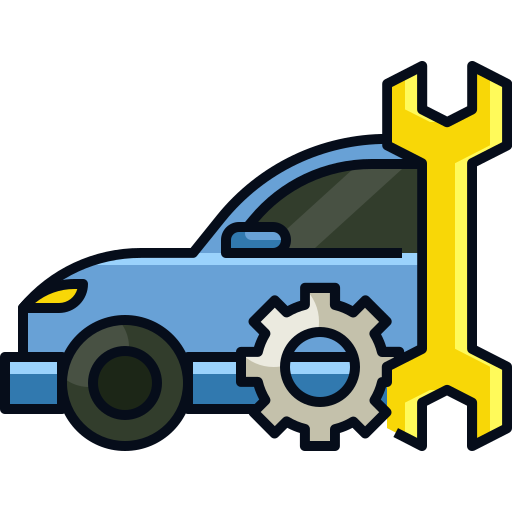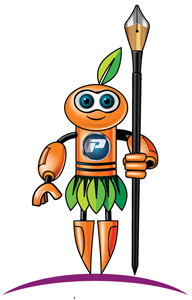30 Dec Interesting Readings
Top 15 Industries for Technical Writers
— TWT Staff
Technical writers play a vital role across diverse industries in creating documents and communication materials to render intricate technical information comprehensible to a broader audience. Virtually every sector incorporates some form of technical writing, encompassing instruction manuals, reference documentation, and compliance materials.
Here are some industries where technical writers are in high demand:
Information Technology (IT)
Technical writers in IT are responsible for the creation of various documentation types for software, hardware, and IT systems to facilitate understanding, usage, and compliance within the dynamic and rapidly evolving IT landscape.
Examples of documentation: User manuals, API documentation, system architecture documents, release notes, policy and procedure manuals, training materials, compliance documentation, knowledge base articles, business process documentation, network configuration guides, and disaster recovery plans.
Software Development
In software development, the contributions of a technical writer are integral to the overall success of a software product. Their role involves improving user comprehension, assisting developers, and ensuring the maintenance of high-quality documentation throughout the entire software development life cycle.
Examples of documentation: API documentation, technical specifications, compliance documentation, release notes, code comments, SDKs, and developer documentation.
Healthcare and Medical Devices
The work of technical writers in healthcare and medical devices is to ensure that healthcare professionals, patients, and other stakeholders can effectively understand and use medical devices, software, and related products.
Examples of Documentation: Regulatory compliance documentation, User guides for medical imaging device and healthcare software applications, package inserts and labels, and training guides for healthcare providers.
Aerospace and Defense
Technical writers in the aerospace and defense industry must convey highly technical information accurately and clearly to diverse audiences, including engineers, technicians, pilots, and military personnel. The documentation they produce is critical for maintaining safety, compliance, and operational efficiency.
Examples of Documentation: Manuals for aircraft, spacecraft, or defense systems, guides for maintenance personnel, SOPs for assembly, testing, and quality control, safety document, compliance document, and proposal and bid documents.
Telecommunications
Technical writers in the telecommunications industry help bridge the gap between highly technical information and end-users, ensuring that professionals in the field can effectively deploy, manage, and troubleshoot telecommunications systems. The clarity and accuracy of their documentation are critical for the reliable functioning of telecommunications networks and services.
Examples of Documentation: Manuals for network infrastructure, telecommunications protocols and communication devices, network configuration guides, capacity planning documents, SLAs, network diagrams and topology documentation.
Manufacturing and Engineering
Technical writers in the manufacturing and engineering sectors contribute to the efficient operation, maintenance, and troubleshooting of products, and ensure compliance with industry standards and regulations.
Examples of Documentation: Assembly instructions, technical specifications, user manuals, process documents including manufacturing procedures, quality control processes, and safety protocols, RFP responses, maintenance manuals, and troubleshooting guides.

Finance and Banking
Technical documents in the finance and banking sectors \ facilitate internal processes, maintain regulatory compliance, and foster effective communication with both internal and external stakeholders.
Examples of Documentation: Policy and procedure manuals, user guides for financial software, compliance documentation, financial reports and statements, client-facing documents, internal audit reports, customer communication documents, RFP responses, and financial policies and guidelines.
Energy and Utilities
Technical writers in the energy and utilities sector contribute to the effective functioning of the industry by creating documentation that addresses operational, safety, regulatory, and training needs. Their work ensures that critical information is communicated clearly and accurately to various stakeholders involved in the energy and utilities domain.
Examples of Documentation: Manuals for power plants, renewable energy systems, and utilities, energy efficiency guides, technical reports, operations and maintenance manuals, safety procedures and guidelines, and environmental impact assessments.
E-learning and Education Technology
Technical writers in e-learning and education technology contribute to the success of educational initiatives by providing clear and user-friendly documentation. Their work supports educators, students, and administrators in effectively utilizing and implementing technology solutions in the educational environment.
Examples of Documentation: User guides, tutorials, and instructional materials for educational software and e-learning courseware, user manuals for learning management systems, script and storyboard for e-learning modules, assessment and grading guides, and educational policy and compliance documentation.

Government and Public Sector
Technical writers in the government and public sector contribute to effective communication, transparency, and accountability by producing a variety of documents that serve the needs of government officials, employees, and the general public.
Examples of Documentation: Policy manuals, legislative documentation, SOPs, public reports and white papers, government websites content, RFP documents, public awareness campaign materials, environmental impact assessments, and budget and financial reports.
Automotive
Technical writers in the automotive industry play a vital role in ensuring the effective communication of technical information throughout the entire lifecycle of a vehicle, from development and manufacturing to maintenance and customer support. Their documentation contributes to the safety, reliability, and user-friendliness of automotive products.
Examples of Documentation: Service manuals for diagnosing, repairing, and maintaining vehicles, owner’s manuals on proper operation, routine maintenance, and troubleshooting, assembly instructions, quality control procedures, training materials for technicians, diagnostic trouble code guides, product recall notices, and interface control documents.

Pharmaceuticals and Biotechnology
Technical writers in the pharmaceuticals and biotechnology industries help bridge the gap between scientific experts and various stakeholders by creating documentation that supports research, development, manufacturing, quality assurance, and regulatory compliance. Their work is integral to ensuring the safety, efficacy, and quality of pharmaceutical and biotech products.
Examples of Documentation: Drug development and regulatory documentation, SOPs, clinical trial protocols and reports, package inserts and patient information leaflets, quality assurance documentation, validation protocols and reports, scientific articles and manuscripts, pharmacovigilance reports, batch records for manufacturing and bioprocess documentation.
Consumer Electronics
In the consumer electronics industry, technical writers play a vital role in creating documentation that facilitates product understanding, usage, and troubleshooting for both consumers and technical support teams.
Examples of Documentation: User manuals, guides for electronic devices, safety and regulatory compliance documents, firmware and software release notes, warranty and returns information, online help and knowledge base articles, marketing collateral, mobile app user guides, and accessibility guides.
Environmental and Sustainability
In the environmental and sustainability field, technical writers play a critical role in communicating information related to environmental policies, sustainability practices, compliance with regulations and green technologies.
Examples of Documentation: Environmental impact assessments, sustainability reports, environmental compliance documentation, corporate environmental policies, environmental management system (EMS) documentation, waste management plans, renewable energy project documentation, community engagement documents, energy efficiency guides, and climate action plans.
Gaming and Entertainment
Technical writers enhance the overall gaming experience and ensure effective communication within the gaming community.
Examples of Documentation: Manuals for video games, gaming platforms, and entertainment software, installation guides, patch notes, localization guides for adapting games to different languages and cultural contexts, game design documents, UI and UX documentation, and online community guidelines.
Conclusion
Professionals with technical writing expertise are highly esteemed in a range of industries. Whether it’s simplifying intricate IT systems, providing instructions for software installation, guiding users through new app usage, ensuring healthcare documentation compliance, supporting aerospace safety measures, contributing to sustainable energy practices, or facilitating drug development, technical writers play a pivotal role in improving communication and comprehension across diverse sectors. With the ongoing advancement of technology, the demand for proficient technical writers is expected to endure and extend into emerging industries, thereby reinforcing their significance in the realm of technical communication.




Yashaswini
Posted at 11:34h, 31 DecemberInformative article and a great research has been done by the team. Thanks for sharing this article!